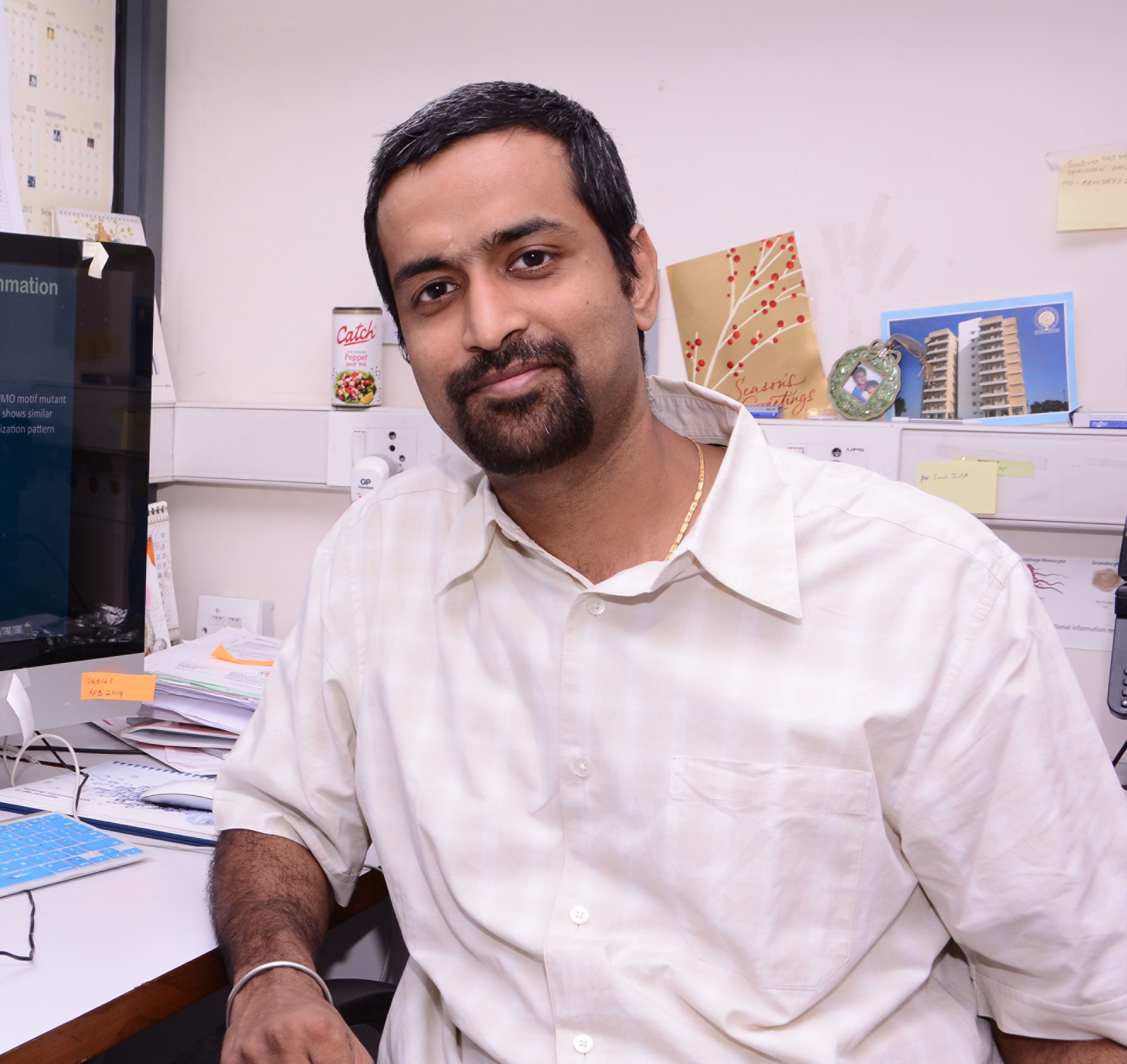
Professor
E-mail: cvsrikanth at rcb dot res dot in
Research in my lab is broadly directed at understanding the key events that cause inflammation during infections and autoimmune disorders of gastrointestinal tract. Specifically, we work on very important human diseases which arise due to bacterial infections and immune disorders. Our key interests are: (i) Host-Salmonella crosstalk, (ii) Persistent Salmonella infections, (iii) Gut microbiota and its connection to human diseases, (iv) Intestinal autoimmune disorders, (v) Molecular mechanisms of colorectal cancer and gallbladder cancer.
We focus on model bacterial pathogen Salmonella Typhimurium with an ultimate goal to understand molecular mechanisms underlying its pathogenesis. The gram negative, facultative intracellular bacterial pathogen Salmonella is one of the most frequent causes of acute gastroenteritis in humans. The disease results from a complex cascade of interactions between the pathogenic bacterium, the host intestinal epithelium, the commensal microbiota and the immune system of the host. Each of these entities are of interest to us. The disease manifestation is characterized histologically by massive infiltration of neutrophils (PMN), a phenotype also observed in some of the chronic autoimmune diseases of the gut such as Crohn’s disease (CD) and ulcerative colitis (UC). In the recent times, there has been a sudden increase in incidence of CD and UC.
Crohn’s disease (CD) and ulcerative colitis (UC) are serious autoimmune disorders which are now on a rise. Uncontrolled inflammation contributes to the pathogenesis of inflammatory diseases as well as the development of cancers. We are also working on inflammation induced gastrointestinal cancers.
Using state of the art tools of microbiology, molecular biology and fluorescent-imaging and proteomics, our group probes complex mechanisms operational during these illnesses. We utilise cell culture model , murine model(s), organotypic models and human patient samples to carry out these investigations. We have long standing collaborations with clinicians and experts in the field which has allowed us to create our own niche in the field. We have been examining the involvement of post-tranlational modification (PTMs) pathways in shaping inflammatory processes of gut. Our recent paradigm shifting discovery, demonstrating the critical role of SUMOylaiton in modulation of gut homeostasis has opened up several exciting avenues in biology of infectious diseases and GI illnesses. In future, we aim to dissect the precise role of PTM pathways in governing epithelial-immune crosstalk particularly in the context of intestinal inflammation. The ultimate goal is not only to combat bacterial pathogenesis but also find therapeutic solutions to auto-immune disorders.
Dr. Chittur V Srikanth
Professor
Regional Centre for Biotechnology
NCR Biotech Science Cluster
3rd Milestone, Faridabad-Gurgaon Expressway
P.O. Box No. 3, Faridabad - 121 001
Haryana (NCR Delhi), India
E-mail: cvsrikanth at rcb dot res dot in
Phone: 91 129-2848820